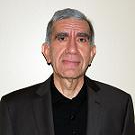Trauma and the Brain (TBI) From Brain to Behavior - Part 2
This course was created and provided by the Virtual Center of Excellence (VCE), a former project of the Detroit Wayne Integrated Health Network (DWIHN). Content and format will be updated in the near future to address current accessibility standards. If you are unable to access the content in this section, please contact the imp support team for assistance.
This online course series was developed by Ali Amirsadri, MD to enhance working relationships between direct support professionals and the individuals to whom they provide support services.
Part 2 of 4 addresses meeting basic needs and begins a discussion of brain structure and its impacts on behavior.
Primary Needs of Human Beings
In the second part of this course, participants will explore the brain in more detail regarding the basic needs of a human being and how those needs change over time, based on environmental factors. The course expert does provide additional examples of factors that may negatively affect brain development.
Developmental Changes and Biology
Transitioning away from human needs, this course refocuses on the potential for biological changes as a result of inadequate or slowed brain development.
The Stress-Vulnerability Model
Participants of this course will be exposed to the Stress-Vulnerability model. This model helps to chronical the process of a client who has experienced a traumatic event or event that has generated a large amount of stress. The model also addresses the coping mechanisms that are common to for these clients and provides best practices for identifying potential treatments.
In 2018, Alireza Amirsadri, M.D., assistant clinical professor of Psychiatry and Behavioral Neurosciences for the Wayne State University School of Medicine, has been selected to receive the National Alliance on Mental Illness Michigan Physician of the Year Award.
- Participants of this course will develop an understanding of basic human needs and how those needs change over time.
- Participants will also develop an understanding that once those needs change, behavior can be affected in positive or negative ways.

Dr. Ali Amirsadri
Chief Medical Officer in the Department of Psychiatry and Behavioral Neurosciences at Wayne State University
Ali Amirsadri, MD, is currently the Chief Medical Officer in the Department of Psychiatry and Behavioral Neurosciences at Wayne State University, Assistant Professor of Psychiatry in the DPBN Clinician-Educator program, the Medical Director of Emergency Psychiatry at DMC, and the Medical Director of the High Intervention Program (Inpatient and Crisis Center) at Detroit Receiving Hospital. He has been named one of the 'Best Doctors in Michigan' in both 2010 and 2011 and also honored as the 'Most Distinguished Resident' at Sinai Hospital of Detroit.
Course Progress
Course Content
This content is unavailable
Enroll in the course to access
What People Are Saying
The module experience was a learning tool to further good practice in my work environment."

